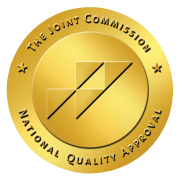The Gray Days of Dysthymia
Imagine a gray world. Things might have been in color once. But time has passed, and life has happened. It might be significant things that have happened to you. But it might just be the grind. The living of your circumstances. Whatever it is, the color is gone. This is Dysthymia. Also known as persistent depressive disorder. It might be a milder form of depression than major depressive disorder. But the symptoms can still be devastating.
What Is Dysthymia Like?
There’s a constant background hum of sadness and fatigue throughout the day. You might be able to get out of bed, but engaging in the world around you has no appeal. Talking to friends and coworkers is an extra effort you don’t have. Meeting new people is far from a priority.
Things you once liked to do become distant memories or just lack appeal. Part of this is the struggle of focus. Concentrating is work, and thoughts feel like water slipping through your fingers. It is the underlying (or overlaying) hopelessness. Your quiet voice is not insidious nor comforting — it simply says, “This is your life, and things will never get better.”
You may be able to walk through life, but you live in a relentless gloom. The important part is that it is chronic. It’s not just a case of the blues. It is a gnawing emptiness that has settled in for the long haul. It has been around for at least a year and doesn’t seem to be going away anytime soon.
Here are a few symptoms of Dysthymia:
Symptoms:
- Depressed mood: Most of the day, for more days than not, for at least two years (one year for children and adolescents).
- Appetite changes: Poor appetite or overeating.
- Sleep disturbances: Insomnia or hypersomnia.
- Low energy or fatigue.
- Low self-esteem.
- Poor concentration or difficulty making decisions.
- Feelings of hopelessness.
What Causes Persistent Depressive Disorder?
Just like most mental health issues, PDD can occur for a variety of reasons. But it is important you don’t blame yourself for this. Life creates us. We are participants, but our control over the contributing factors of Dysthymia is minimal.
Genetic Factors
- Family History: Individuals with a family history of depression or other mood disorders are more likely to develop PDD.
Biological Factors
- Brain Chemistry, Hormonal Imbalances, Brain Structure
Environmental Factors
- Chronic Stress, Trauma, Neglect or Abuse
Psychological Factors
- Personality Traits, Chronic Illness
Social Factors
- Isolation, Socioeconomic Status
Other Contributing Factors
- Substance Abuse, Medication Side Effects
How Do you Treat Dysthymia?
This is not just a bad day or even a bad week—it’s a low-grade, chronic cloud that hangs around for at least two years in adults (one year for kids and teens).
Dysthymia involves a persistent imbalance in brain chemicals like serotonin and dopamine. These are the pleasure and motivation chemicals in the brain. Also, they regulate our general well-being.
There is some good news in all of this. Some light in the persistent depressive disorder tunnel. Antidepressants can help rebalance things so that you are on the path to feeling better on a daily basis.
Healing With Therapy
But real healing can come in the form of therapy. CBT makes a difference in helping people regain their lives. In this kind of treatment, you are given tools to reframe your life and create coping strategies for when things start to feel off.
You will likely also hear about the benefits of exercise, nutrition, and holistic healing in your therapy. Many people are surprised to learn how much impact these three things have on Dysthymia and how a few lifestyle tweaks can make a tremendous difference.
The gray of life can find color again. Remember, there is hope, and there is help.
Get Help with PDD in Newport Beach
If you recognize these symptoms in yourself or a loved one, it’s time to take action. At Lido Wellness Center, we specialize in providing compassionate, comprehensive care for those struggling with Persistent Depressive Disorder.
Our Intensive Outpatient Program (IOP) in Newport Beach offers tailored treatment plans designed to help you regain control and find hope.
Don’t let Dysthymia keep you in the shadows any longer. Call us today at 949-541-8466 and start your journey towards a brighter tomorrow.




